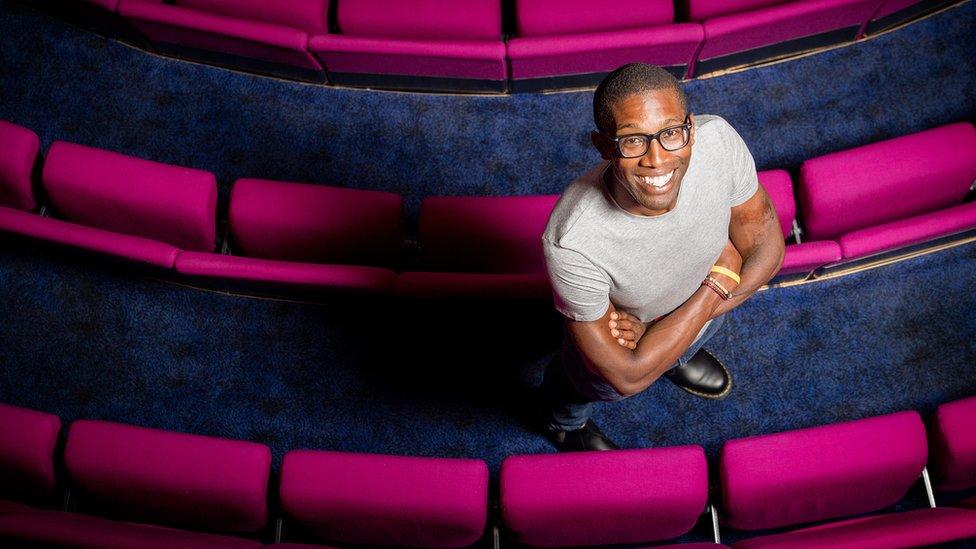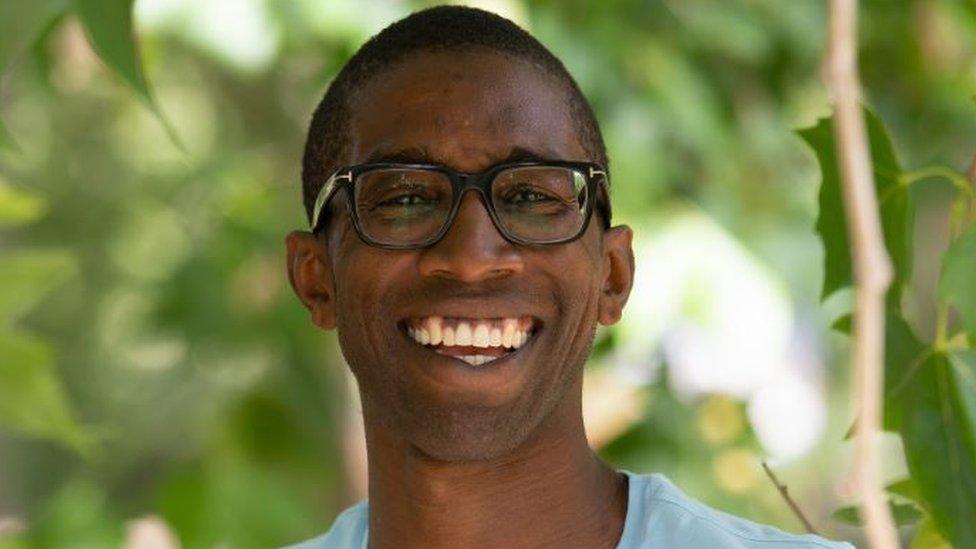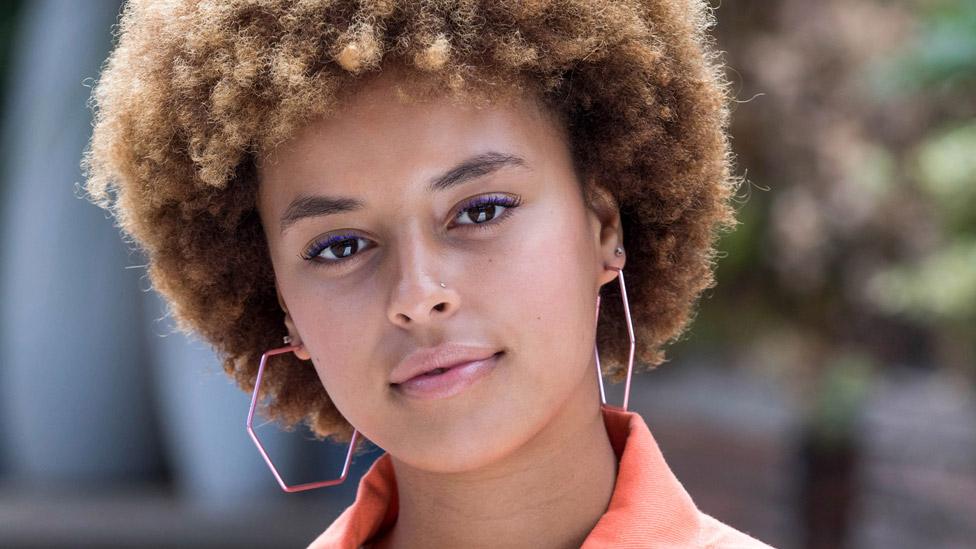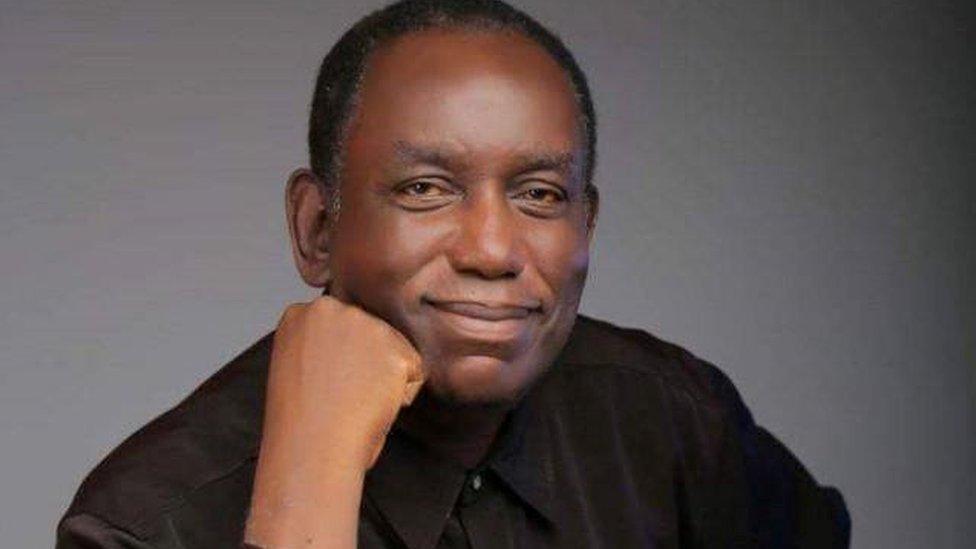Royal Institution lecture: 'Science was racist' says first black lecture host
- Published

Prof Chris Jackson, from Alvaston, Derby, said the lecture was a "fantastic opportunity"
A professor who will be the first black person to host a lecture series in 200 years said science "historically has been racist" but "times are changing".
Prof Chris Jackson will deliver a Royal Institution (RI) Christmas lecture this year, which will be shown on BBC Four.
The geologist, from Derby, said he feels he is representing the working class, as well as the black community, and wants people to "be proud" of him.
The RI said that having a black scientist host was "overdue".
The Christmas science lectures were started by Michael Faraday in 1825, and are now broadcast on television annually.
In 2015, Kevin Fong presented a lecture, external but until then they had been hosted by white scientists.

Prof Jackson's lecture will be about how geology has recorded climate change
Prof Jackson, who will present alongside Dr Helen Czerski and Dr Tara Shine, told the BBC: "There have clearly been other qualified black people to give this lecture in the last 200 years.
"I think institutions and people have been very poor at recognising the contributions of black scientists, as they have equally women scientists.
"Times are changing now so there is increasing recognition that there have been significant contributions made by those groups of people."
Prof Jackson, who works in the faculty of engineering at Imperial College, London, said his lecture will be about how rocks are a "very rich record" of how climate has changed over millions of years.
He said it was "an absolutely huge honour" to be chosen.
A spokesman from The RI said: "While we can't change the past, we can learn from it. That's why we are doing as much as we can to bring greater diversity.
"Our Christmas lecturers are always experts in their scientific discipline and always have evidence of their past commitment to public engagement, so it's great when they're also from more diverse backgrounds."

Follow BBC East Midlands on Facebook, external, Twitter, external, or Instagram, external. Send your story ideas to eastmidsnews@bbc.co.uk, external.
- Published13 July 2020

- Published9 July 2020

- Published23 June 2020
